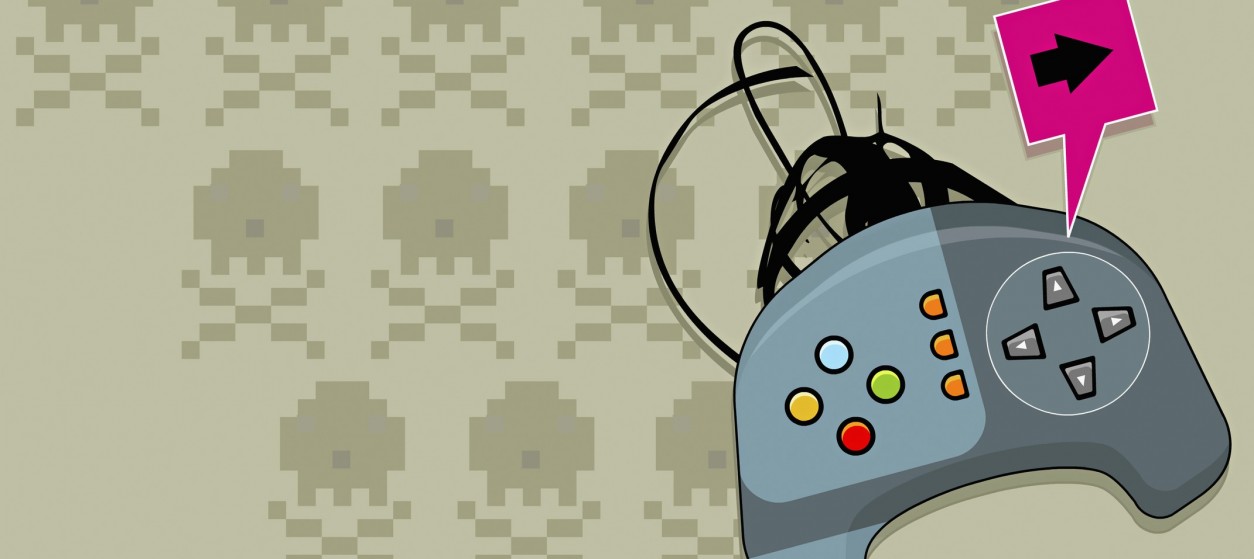Our society has been influenced by video games for more than 30 years. Over this entire span, several generations of video games have been created. It sprang from consoles and arcade games, to online-gaming and virtual reality. This explains the large size of the gaming industry which is worth more than $100 Billion and has a growing momentum. The lion’s share of this market (i.e. over 85%) concerns digital games including games played through Smartphones and tablets as well as games for personal computers and specialized consoles. In this context, the gaming industry is constantly developing, testing and deploying new games centered around novel ideas based on their theme, graphics and operation.
The task of game development outsourcing has many similarities to other types of software outsourcing activities. However, it also has its own drivers and challenges. In the following paragraphs, we shed light to the rationale behind outsourcing game development while at the same time outlining relevant challenges and success factors.
Game Outsourcing: The Drivers
Offshore game development is primarily driven by cost factors. For over two decades, developers and software firms in Asia (e.g., India and China) have delivered high quality software development services at a very competitive cost which is way cheaper than the cost of the respective activities in USA, Europe and Australia. In recent years, we are also witnessing the emergence of competent developers in African countries who are in several cases delivering at even lower prices. As a rule of thumb, outsourcing reduces development costs by at least 50-60%.
Globalization facilitates cost-driven outsourcing by making it extremely easy for enterprises to access development resources all around the globe. It also facilitates access to world-wide talent through broadening the spectrum of available resources. This is particularly important for the gaming industry given the diversity of skills needed for successful game development including UX design, graphics, software development, ergonomics, animation and database skills.
The cost factor is by far the main driver for games outsourcing. However, there are also other secondary reasons that lead game vendors to offshore some of the development activities, including:
- Acceleration of development cycles: Outsourcing can accelerate the game development cycle especially in cases of vendors who run short of in house resources for particular development tasks.
- Access to worldwide talent: In several cases game vendors lack specific expertise for their development tasks. Hence they opt to outsource specific tasks in order to gain access to the missing skills. In this direction they are able to leverage access to marketplaces.
- Innovation: As companies grow in size and revenue, they have hard time to remain innovative and agile. In such cases they may turn to outsourcing as a means of injecting a new breeze of innovation in their activities.
- Internal focus improvement: Successful enterprises remain focused on their core competencies. To this end, they opt to outsource auxiliary tasks of their game development.
- More variable cost structure: Several enterprises are not keen on having a fixed cost structure that is independent of their sales. Outsourcing enables them to turn fixed costs into variable costs which reduce relevant risks. As soon as more work is needed, enterprises can access outsourced development resources to get it done.
Read More: Augmenting eLearning Using Game Mechanics
Challenges and Solution Guidelines
Seizing the benefits of outsourcing is always a difficult task. Here is a list of outsourcing challenges and solutions you should be aware of:
- Complete outsourcing is hardly possible: Outsourcing does not free you completely from your game development tasks. For example, when outsourcing game software development you will still have to act as designer, producer, technical coordinator and system tester.
- Disciplined and well defined specifications is a key to success: The quality of the outsourcing work is directly related to the quality of the specifications that you will give to the offshore company. At the same time, well defined specifications are prerequisite for getting both a credible quote and a timeframe for the implementation of the outsourcing tasks.
- Contract management is important: Game outsourcing involves a contractual relationship that comprises a price, a time plan and the implementation of specific deliverables. Proper management of this contractual relationship is therefore one of the critical success factors and a prerequisite to avoid loss of control. This is the reason why it’s quite common for companies to allocate 2-3% of the value of the outsourced contract to contract management tasks.
- Selecting the proper company or freelancer: It might be challenging to select the proper company or freelancer who will undertake the outsourced task especially when the size of the project grows big. Start with an assessment of candidates based on a variety of scoring criteria that emphasize on track record and experience in the features and development areas at hand.
- Distinguish core tasks from critical tasks: Companies should make sure that they keep their core activities in-house while outsourcing secondary and support activities. Nevertheless, secondary tasks can still be very critical for the implementation and roll-out of a new game.
- Employee resistance can lead a project to fail: Employees are likely to perceive outsourcing as a threat, since it is a signal that their job could go off-shore. This is particularly the case when outsourcing leads to changes in job roles and the organizational chart of the company. Therefore, it’s important that the benefits and expectations of the outsourcing tasks are adequately explained to employees through proper communication and training sessions. Senior management commitment and support can always act as a catalyst for alleviating employee resistance.
- Understanding game development components: A thorough understanding of all the tasks and skills needed for game development is essential to successful outsourcing. Game design, graphics design, programming for single player games, programming for multiplayer games, high-end 2D and 3D design, design for different genres and art styles are some of the most common game development tasks.
Read More: Captive vs. Outsourcing – Choosing the Better Alternative of Offshoring
Experience has shown that the benefits of game development outsourcing outweigh the risks. The risks are greatly reduced when experienced firms with full cycle game development capabilities are used. Outsourcing improves the competitiveness of game vendors and is therefore likely to remain as one of the main trends of the game industry in the near future. Companies should leverage outsourcing opportunities through proper management procedures. At the strategic level, they should also consider outsourcing auxiliary tasks which will enable them to remain focused on their core strengths. We hope that the guidelines would help you when you think about outsourcing game development tasks in the future!











Doees your blog have a contact page? I’m having
trouble locating it but, I’d like to shoot you an email. I’ve got some creative
ideas for your blolg you might be interested in hearing.
Either way, great website and I look forward to seeing it grow over time. https://Lvivforum.pp.ua/